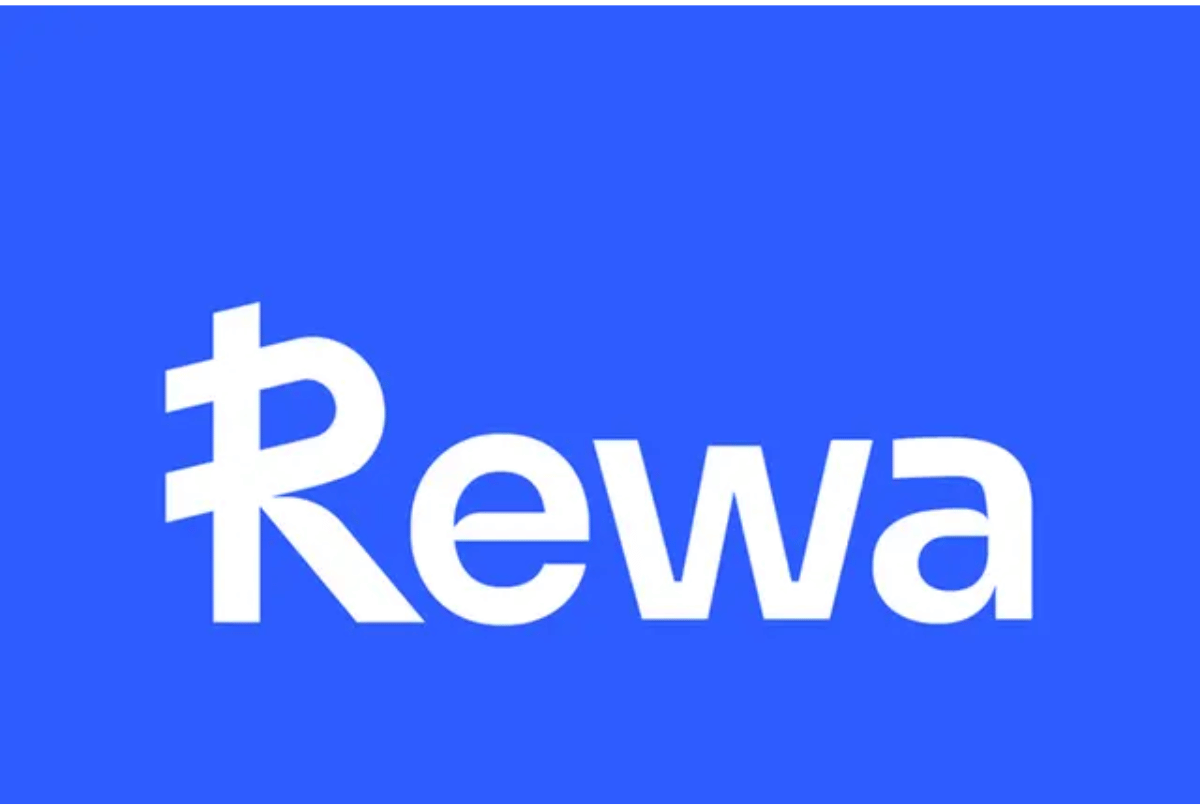
Global Fintech Trends – 9th August, 2024
MTN SA boosts MoMo cashback for purchases
Effective immediately, until January 31, 2025, registered MoMo self-service channel users will receive ten times the usual cashback on the purchase of any of the qualifying MTN bundles.
Recognising the need for savings during these challenging times, MTN is amplifying the MoMo cashback reward from the standard 1 percent to 10 percent for all purchases of MTN airtime denominations.
Kagiso Mothibi, acting Chief Executive Officer of MTN Fintech SA, said this initiative aimed to provide substantial relief to customers and enhance their MoMo savings.
MTN SA boosts MoMo cashback for purchases
Effective immediately, until January 31, 2025, registered MoMo self-service channel users will receive ten times the usual cashback on the purchase of any of the qualifying MTN bundles.
Recognising the need for savings during these challenging times, MTN is amplifying the MoMo cashback reward from the standard 1 percent to 10 percent for all purchases of MTN airtime denominations.
Kagiso Mothibi, acting Chief Executive Officer of MTN Fintech SA, said this initiative aimed to provide substantial relief to customers and enhance their MoMo savings.
Mothibi said the 10 percent cashback opportunity is the company’s way of thanking registered supporters of MoMo.
Read more here: https://www.cajnewsafrica.com/2024/08/08/mtn-sa-boosts-momo-cashback-for-purchases/
Amiviz partners with senhasegura to bring cutting-edge privileged access management to the Middle East and Africa
Dubai, UAE: AmiViz, the leading cybersecurity-focused value-added distributor headquartered in the Middle east, today announced a strategic partnership with senhasegura, a global leader in Privileged Access Management (PAM). This collaboration brings senhasegura’s industry-leading PAM solutions to organizations across the Middle East and Africa, empowering them to effectively mitigate cybersecurity risks associated with privileged credentials.
As cyber threats grow in sophistication and frequency, securing privileged access has become paramount for organizations of all sizes. senhasegura’s comprehensive PAM platform provides granular control and visibility over privileged accounts, protecting sensitive data and critical systems from unauthorized access and potential breaches.
South African banks to end EFT services to several countries
This change will prevent South African clients from sending money electronically to these countries within the Common Monetary Area (CMA). As of 30 September 2024, transactions such as low-value EFTs, as well as debit and credit card payments between CMA countries, will be reclassified as cross-border payments. The South African Reserve Bank (SARB) has announced that these transactions will be subject to increased due diligence measures.
The SARB explained that previously, these transactions were handled as domestic payments within the CMA, processed through South Africa’s domestic retail payment system. This system provided a cost-effective and efficient service for clients. However, to comply with international standards and enhance the ability to detect and prevent financial crimes such as money laundering, the payment system will be updated.
Read more here: https://thepaypers.com/payments-general/south-african-banks-to-end-eft-services-to-several-countries–1269565
Afriex transforms cross-border payments with the launch of Global Accounts
With the rise of emigration in Africa, cross-border payment options have never been more needed. Nigeria alone received $19.5 billion in diaspora inflow in 2023 which is the highest foreign remittance received in sub-Saharan Africa. From parents funding their children’s education overseas, expatriates supporting family and friends, remote workers working overseas but living locally, to the growing number of Nigerian businesses with global operations, the need for cross-border payment platforms continues to grow.
Despite this growing demand, accessing global financial options has always been full of challenges for Africans. Sub-Saharan Africa has the highest remittance cost with an average of 8.5% of the amount transferred compared to less than 6% in other regions. These remittance costs are high because of underdeveloped financial infrastructure in some countries. Other problems that plague cross-border remittance include high bank charges, the cost of money transfer operator percentages and stamp duties, slow processing times, limited international coverage, regulatory roadblocks, and sometimes the complex steps involved in making international payments. These challenges not only impede personal finances but also hinder the growth of African businesses by limiting their ability to participate in the global marketplace.
Kenyan commercial banks to start tracking high-value transactions
Kenyan commercial banks will track large cash deposits and transfers – typically over KES 1 million – following an October 2023 central bank directive on money laundering and terrorism financing, which introduced “purpose of payment” (PoP) transaction codes. The directive could fast-track local compliance with ISO 20022, which dictates transparent financial transaction processing.
The CBK didn’t state a deadline for compliance, but the global deadline is at the end of 2025.
On Wednesday, NCBA, Kenya’s fourth-largest commercial bank, informed customers of the new measures. Other banks are expected to implement PoP codes for Real-Time Gross Settlement (RTGS) transactions, which allow customers to move large amounts of cash between banks instantly.
Read more here: https://techcabal.com/2024/08/08/kenyan-banks-to-start-tracking-high-value-transactions/
Building a security-first culture critical to protecting Africa’s digital financial ecosystem
As the digital payments landscape in Africa expands, the need for robust cybersecurity measures becomes increasingly urgent. Trust and security are foundational to financial services, and as cybercriminals continue to become more aggressive and sophisticated, addressing any vulnerabilities is critical to safeguarding the integrity of Africa’s digital financial ecosystem. In fact, Africa experienced the highest average number of cyberattacks per week per organisation in 2023, with a 23% increase compared to the previous year.
Africa’s digital financial ecosystem is still maturing. As digital payments become more integrated across countries and regions, and more interoperable across payment platforms, this increasingly complex environment can introduce new cybersecurity vulnerabilities.
Read more here: https://techcabal.com/2024/08/08/africas-payments-cybersecurity/
ICAEW and UAE Banks Federation partner to guide firms in digital currency adoption
The Institute of Chartered Accountants in England and Wales (ICAEW) has partnered with the UAE Banks Federation (UBF) to help firms navigate the rapidly evolving digital assets landscape projected to reach $80.08 billion by 2024.
This initiative coincides with the UAE’s advanced pilot of Central Bank Digital Currencies (CBDCs), positioning the nation at the forefront of financial innovation.
CBDCs are digital forms of a country’s sovereign currency, issued and regulated by the central bank. They are designed to work alongside traditional physical currencies, offering a secure and efficient method of digital transactions. The UAE is one of only 36 countries in the world currently piloting their use.
Read more here: https://www.zawya.com/en/world/middle-east/icaew-and-uae-banks-federation-partner-to-guide-firms-in-digital-currency-adoption-ck6rm7rx
Australia moves one step closer to roll out of Confirmation of Payee
Australian Payments Plus (AP+) and the Australian Banking Association (ABA) have completed the design specs for a new national Confirmation of Payee service, providing another layer of protection against scammers.
The new service, which is to be built by banking co-operative Swift, will comprise a central matching database to determine a name match based on account data provided by each payee Financial Institution (FI) when compared to the account name entered by the payer.
Lynn Kraus, CEO of AP+ says the the agreement on the design is an important step forward for the industry in the pursuit of combatting scams and frauds.
Read more here: https://www.finextra.com/newsarticle/44565/australia-moves-one-step-closer-to-roll-out-of-confirmation-of-payee
Mothibi said the 10 percent cashback opportunity is the company’s way of thanking registered supporters of MoMo.
Read more here: https://www.cajnewsafrica.com/2024/08/08/mtn-sa-boosts-momo-cashback-for-purchases/
Amiviz partners with senhasegura to bring cutting-edge privileged access management to the Middle East and Africa
Dubai, UAE: AmiViz, the leading cybersecurity-focused value-added distributor headquartered in the Middle east, today announced a strategic partnership with senhasegura, a global leader in Privileged Access Management (PAM). This collaboration brings senhasegura’s industry-leading PAM solutions to organizations across the Middle East and Africa, empowering them to effectively mitigate cybersecurity risks associated with privileged credentials.
As cyber threats grow in sophistication and frequency, securing privileged access has become paramount for organizations of all sizes. senhasegura’s comprehensive PAM platform provides granular control and visibility over privileged accounts, protecting sensitive data and critical systems from unauthorized access and potential breaches.
South African banks to end EFT services to several countries
This change will prevent South African clients from sending money electronically to these countries within the Common Monetary Area (CMA). As of 30 September 2024, transactions such as low-value EFTs, as well as debit and credit card payments between CMA countries, will be reclassified as cross-border payments. The South African Reserve Bank (SARB) has announced that these transactions will be subject to increased due diligence measures.
The SARB explained that previously, these transactions were handled as domestic payments within the CMA, processed through South Africa’s domestic retail payment system. This system provided a cost-effective and efficient service for clients. However, to comply with international standards and enhance the ability to detect and prevent financial crimes such as money laundering, the payment system will be updated.
Read more here: https://thepaypers.com/payments-general/south-african-banks-to-end-eft-services-to-several-countries–1269565
Afriex transforms cross-border payments with the launch of Global Accounts
With the rise of emigration in Africa, cross-border payment options have never been more needed. Nigeria alone received $19.5 billion in diaspora inflow in 2023 which is the highest foreign remittance received in sub-Saharan Africa. From parents funding their children’s education overseas, expatriates supporting family and friends, remote workers working overseas but living locally, to the growing number of Nigerian businesses with global operations, the need for cross-border payment platforms continues to grow.
Despite this growing demand, accessing global financial options has always been full of challenges for Africans. Sub-Saharan Africa has the highest remittance cost with an average of 8.5% of the amount transferred compared to less than 6% in other regions. These remittance costs are high because of underdeveloped financial infrastructure in some countries. Other problems that plague cross-border remittance include high bank charges, the cost of money transfer operator percentages and stamp duties, slow processing times, limited international coverage, regulatory roadblocks, and sometimes the complex steps involved in making international payments. These challenges not only impede personal finances but also hinder the growth of African businesses by limiting their ability to participate in the global marketplace.
Kenyan commercial banks to start tracking high-value transactions
Kenyan commercial banks will track large cash deposits and transfers – typically over KES 1 million – following an October 2023 central bank directive on money laundering and terrorism financing, which introduced “purpose of payment” (PoP) transaction codes. The directive could fast-track local compliance with ISO 20022, which dictates transparent financial transaction processing.
The CBK didn’t state a deadline for compliance, but the global deadline is at the end of 2025.
On Wednesday, NCBA, Kenya’s fourth-largest commercial bank, informed customers of the new measures. Other banks are expected to implement PoP codes for Real-Time Gross Settlement (RTGS) transactions, which allow customers to move large amounts of cash between banks instantly.
Read more here: https://techcabal.com/2024/08/08/kenyan-banks-to-start-tracking-high-value-transactions/
Building a security-first culture critical to protecting Africa’s digital financial ecosystem
As the digital payments landscape in Africa expands, the need for robust cybersecurity measures becomes increasingly urgent. Trust and security are foundational to financial services, and as cybercriminals continue to become more aggressive and sophisticated, addressing any vulnerabilities is critical to safeguarding the integrity of Africa’s digital financial ecosystem. In fact, Africa experienced the highest average number of cyberattacks per week per organisation in 2023, with a 23% increase compared to the previous year.
Africa’s digital financial ecosystem is still maturing. As digital payments become more integrated across countries and regions, and more interoperable across payment platforms, this increasingly complex environment can introduce new cybersecurity vulnerabilities.
Read more here: https://techcabal.com/2024/08/08/africas-payments-cybersecurity/
ICAEW and UAE Banks Federation partner to guide firms in digital currency adoption
The Institute of Chartered Accountants in England and Wales (ICAEW) has partnered with the UAE Banks Federation (UBF) to help firms navigate the rapidly evolving digital assets landscape projected to reach $80.08 billion by 2024.
This initiative coincides with the UAE’s advanced pilot of Central Bank Digital Currencies (CBDCs), positioning the nation at the forefront of financial innovation.
CBDCs are digital forms of a country’s sovereign currency, issued and regulated by the central bank. They are designed to work alongside traditional physical currencies, offering a secure and efficient method of digital transactions. The UAE is one of only 36 countries in the world currently piloting their use.
Read more here: https://www.zawya.com/en/world/middle-east/icaew-and-uae-banks-federation-partner-to-guide-firms-in-digital-currency-adoption-ck6rm7rx
Australia moves one step closer to roll out of Confirmation of Payee
Australian Payments Plus (AP+) and the Australian Banking Association (ABA) have completed the design specs for a new national Confirmation of Payee service, providing another layer of protection against scammers.
The new service, which is to be built by banking co-operative Swift, will comprise a central matching database to determine a name match based on account data provided by each payee Financial Institution (FI) when compared to the account name entered by the payer.
Lynn Kraus, CEO of AP+ says the the agreement on the design is an important step forward for the industry in the pursuit of combatting scams and frauds.
Read more here: https://www.finextra.com/newsarticle/44565/australia-moves-one-step-closer-to-roll-out-of-confirmation-of-payee




